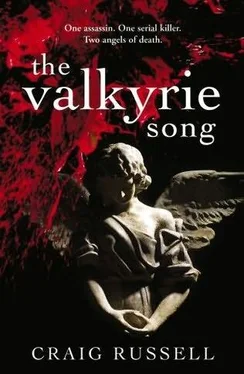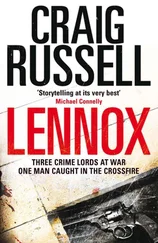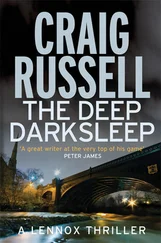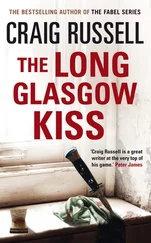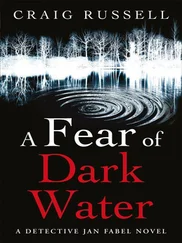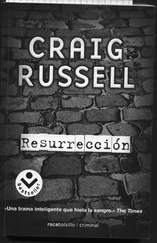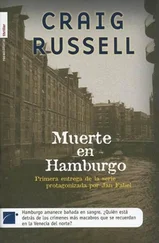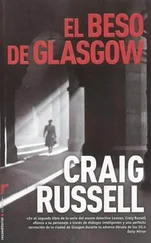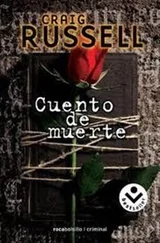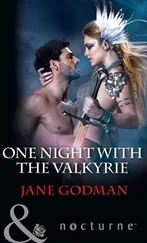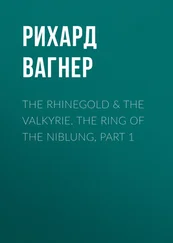Craig Russell - The Valkyrie Song
Здесь есть возможность читать онлайн «Craig Russell - The Valkyrie Song» весь текст электронной книги совершенно бесплатно (целиком полную версию без сокращений). В некоторых случаях можно слушать аудио, скачать через торрент в формате fb2 и присутствует краткое содержание. Жанр: Триллер, на английском языке. Описание произведения, (предисловие) а так же отзывы посетителей доступны на портале библиотеки ЛибКат.
- Название:The Valkyrie Song
- Автор:
- Жанр:
- Год:неизвестен
- ISBN:нет данных
- Рейтинг книги:5 / 5. Голосов: 1
-
Избранное:Добавить в избранное
- Отзывы:
-
Ваша оценка:
- 100
- 1
- 2
- 3
- 4
- 5
The Valkyrie Song: краткое содержание, описание и аннотация
Предлагаем к чтению аннотацию, описание, краткое содержание или предисловие (зависит от того, что написал сам автор книги «The Valkyrie Song»). Если вы не нашли необходимую информацию о книге — напишите в комментариях, мы постараемся отыскать её.
The Valkyrie Song — читать онлайн бесплатно полную книгу (весь текст) целиком
Ниже представлен текст книги, разбитый по страницам. Система сохранения места последней прочитанной страницы, позволяет с удобством читать онлайн бесплатно книгу «The Valkyrie Song», без необходимости каждый раз заново искать на чём Вы остановились. Поставьте закладку, и сможете в любой момент перейти на страницу, на которой закончили чтение.
Интервал:
Закладка:
‘What the hell are you doing?’ A male voice came from behind her.
Everything happened in one movement: she stood, turned, unfastened the sheath, and arced the knife up and into his chest, under his sternum. She thrust it with calculated extra force to penetrate the man’s heavy parka and the layers beneath. The man didn’t react: he would not have seen the knife, its non-reflective black polycarbide surface and the speed of her strike making it invisible in the dark. Still in the same continuous movement, Birta twisted the knife. The man’s eyes and mouth gaped at her as if in outrage or confusion, then he sank to his knees. Birta stood to one side and let him tilt forward and crash onto his face. She turned him over and established two facts within a second: he was dead; he was not her client. The dead man was in his late forties. It was difficult to tell through the layers of clothes, but he looked heavy-set. She opened up his parka and felt the warmth of a body that would no longer generate its own temperature. She checked him for a weapon. None. Not a bodyguard or cop. He had been carrying a large snow shovel and Birta guessed he must have been some kind of handyman. Why hadn’t he come up in her reconnaissance? She cursed to herself and wiped the blade of her knife clean on the shoulder of his coat, at the same time scanning the length of the driveway and the forest on its fringes. She resheathed the knife, unzipped her parka and unholstered her silenced automatic. No sign of anyone else.
Scanning the forest and the snowbank edge of the drive, Birta chose a spot and dragged the dead man across to it, through the snow and into the woods.
Back on the drive she picked up the unattached telescopic sight and used it to study the big bright squares of window on the house. She knew where the client’s study was and that he should be there working until about nine. The blinds had been left open and she could see the whole study. No client. She checked the other illuminated rooms. Nothing.
This was not good. Birta felt a vague panic in her chest and used her will to force it from her, as she’d been taught to do. When you were afraid, when you became stressed, that was when things went wrong. That was when you slipped up with the meeting; that was when people noticed you as you made your departure. Calm. Stay calm.
Birta again checked the driveway. Nothing. She stood motionless, holding her breath, absorbing the sounds of the night and the forest. She cursed again. She was going to have to close the forensic distance. It was a simple rule: the greater the forensic distance, the less the chance of detection and interception. The long-range sniper rifle was the perfect example: the bullet, which might have endured the trauma of passing through wood or glass, then flesh and bone before becoming impacted into brick or deformed by stone, was the only forensic link between you and the dead client. You had a forensic distance from point and moment of death, meaning you had a greater chance of getting away unseen.
But if she couldn’t see the client, she couldn’t use the rifle. He could, of course, simply be in the kitchen making himself a sandwich, but the fact that she had had to take care of a secondary meant she didn’t have the luxury of time. If she hadn’t been discovered by the handyman, then she would have sat it out, maybe an hour, maybe more, waiting for the client to reappear. She would have to get close. Maybe even go into the house. And that meant she was no longer forensically distant from the meeting.
Birta repacked the rifle in its case, again unholstered her handgun, and made her way towards the house.
2
Anna Wolff had spent three nights retracing the drunken footsteps of Armin Lensch. She had also spent the time thinking about the situation she had got herself into. She had been involved in seventeen murder cases since Fabel had selected her for his team. Seventeen different killings for motives as banal as drunken rage or sexual jealousy.
And a few, like these latest ones, had been for motives so twisted and abstract that she knew that no matter how long she served in the Murder Commission, she would never get the measure of the minds behind them. Fabel did, though. It was in itself a creepy thought: that he understood these people. Maybe he was right after all: maybe she wasn’t suited to being a Murder Commission officer.
Anna still couldn’t wrap her mind around the fact that the guy she’d kneed in the groin was now dead. For some abstract reason she couldn’t understand, she felt she had contributed to his death. Maybe it wasn’t that abstract. From what she could gather from his friends, they had teased him about his encounter with her and he had gone off on his own into the night. And then someone had murdered him. The final element in a sequence of events that she could have been said to have set in motion.
It was too close for comfort.
‘Where do you want to go now, Commissar?’ Theo asked her. She turned to him. Theo Wangler was the Davidwache uniform who had been assigned to accompany her as she did the rounds of the bars and clubs. And the uniform hung well on him: Wangler was two metres tall and obviously worked out. Weights, Anna reckoned. He had a broad, strong jaw and when he had taken his hat off to brush back his hair with his fingers she had noticed it was thick, dark and wavy. People as good-looking as he was were usually assholes. She had decided in that instant of first meeting that she disliked him, but would not rule out a bit of a tumble with him. As it turned out, her first impressions had been wrong: Wangler was a quiet type, almost shy. But as they had gone from one bar to the other, she had seen he had a quiet assertiveness about him that kept the unruly in their place yet was unaggressive enough for him to be able to talk reason into all but the most drunk or the most cop-hating. It was, she realised, an ideal temperament for a police officer. A temperament she knew she didn’t possess. Anna decided to dislike Wangler all over again.
The Reeperbahn was long and wide and straight, ideal for weaving the reep, as rope was called in Low German, from which the former ropewalk street had got its name. By day it looked dreary and tawdry, by night it became one of the most illuminated streets in Germany. But, as they made their way along the Reeperbahn, there was something about its ten-thirty neon sparkle that was deeply depressing. A forced, manic jollity. Anna and Wangler had visited one sleazy bar after another, getting nothing from the bar staff. They had done most of their talking to the security men on the doors of the clubs and bars, most of whom, like the bartenders and hostesses, greeted Wangler with a warm handshake or at least a nod of acknowledgement.
‘I’ve worked here for four years,’ explained Wangler, as they made their way along the sinful mile, passing a sex shop with a window full of improbably proportioned sex aids. ‘You get to know people.’
‘Do you like working this beat?’ asked Anna.
‘It’s okay… people have the wrong idea about the Kiez. An old idea, I suppose. Even Superintendent Kaminski. He was on the beat here in the old days and I sometimes think he’s of the opinion that it’s all going to the dogs because the brothels are shutting up shop and the trendy bars, musical theatres and luxury flats are moving in. There’s even an advertising agency setting up its offices here.’
‘That’s all good, isn’t it?’
‘Well, there’s the other side to it. The Reeperbahn used to sell cheap sex. Now it sells cheap booze. The Kiez has become infected with the British Disease — binge drinking, particularly in the clubs. It’s changed the kind of street crime we deal with. Less thievery, more violence.’
‘Isn’t the ban working?’ Anna referred to the recent injunction against the carrying of any weapons in the Reeperbahn and the Kiez. A designated weapon-free zone had been set up, with yellow signs standing at the perimeter.
Читать дальшеИнтервал:
Закладка:
Похожие книги на «The Valkyrie Song»
Представляем Вашему вниманию похожие книги на «The Valkyrie Song» списком для выбора. Мы отобрали схожую по названию и смыслу литературу в надежде предоставить читателям больше вариантов отыскать новые, интересные, ещё непрочитанные произведения.
Обсуждение, отзывы о книге «The Valkyrie Song» и просто собственные мнения читателей. Оставьте ваши комментарии, напишите, что Вы думаете о произведении, его смысле или главных героях. Укажите что конкретно понравилось, а что нет, и почему Вы так считаете.
